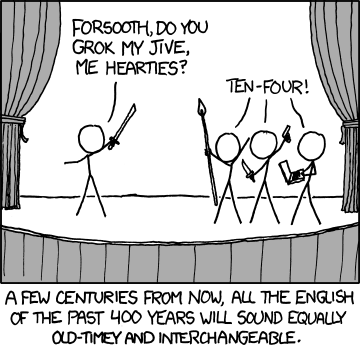In The Freeman, Sarah Skwire points out that the opening act of Shakespeare’s Henry V — while boring to those hoping for battle and carnage — explains the public choice economic theory of rent-seeking:
Shakespeare’s Henry V — a favorite of theater companies and movie studios — begins with an invocation of the muse of fire, presumably because only her powerful heat and light can provide the inspiration necessary for Shakespeare’s great task of bringing forth so “great an object” on “this unworthy scaffold.” The prologue promises, after all, that we are about to see the armies of two great monarchies clash at the famous battle of Agincourt. A plea for divine aid seems only reasonable.
After all that buildup, however, the opening scene of the play has to be one of the dullest stretches in all of Shakespeare’s writing. Promised a ferocious battle with knights and horses and blood and thunder, we are given instead more than one hundred straight lines of a highly technical legal discussion between the Bishop of Canterbury and the Bishop of Ely. It is historically accurate. It is important. And it is exceptionally tedious.
It is tedious, that is, unless you are familiar with one basic piece of Public Choice theory.
Gain without Mutual Benefit
One its core concepts is the idea of rent-seeking. Unlike profit-seeking, which aims at mutually beneficial trade, rent-seeking is the attempt to use the political process to capture a bigger slice of wealth for oneself. Unlike trade, there is no mutual benefit. No wealth is created. The only profit is to the rent-seeker, and possibly his cronies. With that in mind, the opening scene of Henry V is gripping. It is no longer more than one hundred lines of fifteenth-century legal trivia. It is more than one hundred lines of some of the most explicit, uncensored, behind-the-scenes rent-seeking action in literary history.




